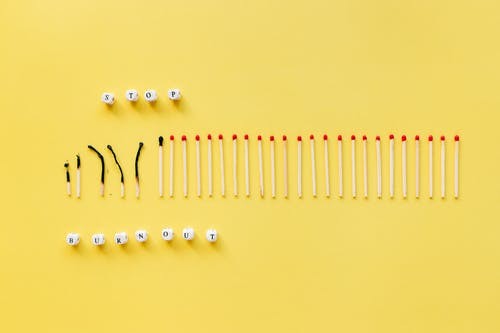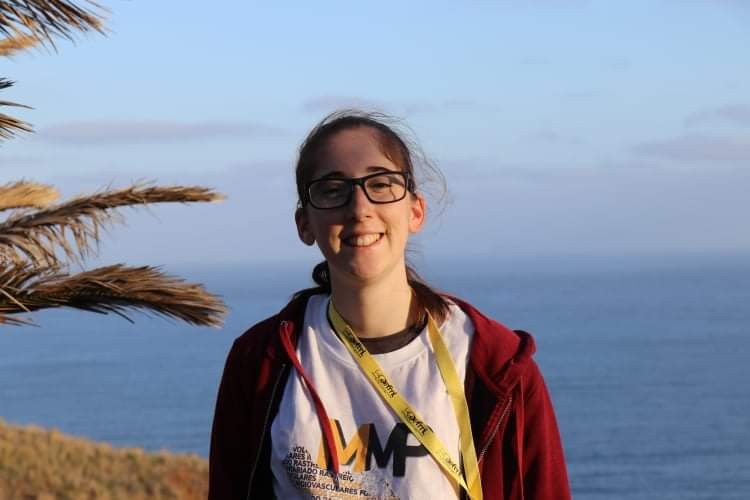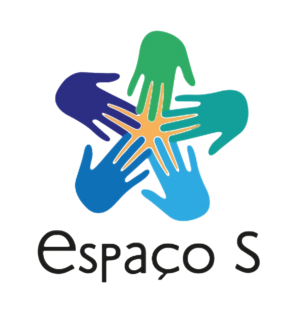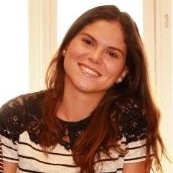
- Perspective of those who study and those who work
Exams. Anxiety. Unforeseen events. A medical degree is demanding at any time, especially in a pandemic crisis, triggering feelings, emotions and adaptations. For this reason, we obtained the testimonial of a student, Maria Cunha, as well as the perspective of Psychologist Cláudia Martins, one of the several professionals who work at the FMUL Space S (Espaço S) project.
The student:

Maria Cunha doesn't stop, as she tells us: “I don't like being still”. Since she was 4 years old, when she remembers entering her grandfather's office, a paediatric surgeon, and seeing a book with an image of a boy with a giant tumour in his belly, she decided to study medicine. For a while, she oscillated between psychiatry, one of her passions, and surgery, but the desire to be “where everything happens” and in the “middle of confusion” overcame her indecision and made her choose general surgery. The interest in Mental Health arose in year 2 of the Degree. In addition to other projects, such as writing for magazine Ressonância, she created a debate group, through which she began to visit schools with the aim of raising the students’ awareness to the harms of drug use. She did it not “in the negative way as is usually done”, because “the students know that it is bad. We just help them make the decision not to take drugs”.
Maria Cunha recently ended a mandate at ANEM as Director of Public Health, where among many activities, webinars, and mental health tips for students, she conducted a study on burnout in medical students.
Why did become interested in studying burnout?
Maria Cunha: It was during a class in year 1, in which the lecturers, according to the Maslach scale (Burnout scale), challenged us to evaluate ourselves. When filling in the scale and after seeing the results, we all realized that it was a delicate topic that deserved our special attention. In that same class we talked about burnout and how to prevent it. I decided to do a little more research and at the time, in 2016, there was a guide about burnout from ANEM, the Burnout Buddy (tools kit).
I retained the three main characteristics, as well as how I could help a friend and how it differed from depression. An expressed desire to get more involved in awareness-raising initiatives quickly emerged and I considered, for the first time, to conduct a study on burnout.
There was nothing about medical students in Portugal, which reflected somewhat the lack of awareness and relevance the topic had among health professionals and academic institutions.
When researching the numbers in other countries, I found very interesting data in the Netherlands and in the United States, and that the suicide rates of health professionals were huge in countries like Germany, South Korea and China. So many countries with burnout data about doctors and students and in Portugal nothing had been published. I wanted to demystify: Portugal is not perfect, we are not perfect and we will not have different burnout rates than other countries, because our system is not that different. The fact is that we are even in a high position in the burnout rankings. Our students suffer from more burnout than the average in European countries. That was the motto to embrace the challenge. It was necessary to know to be able to raise awareness at the Faculty. We quickly understood that one of the best strategies to combat this problem would be to hire more psychologists to work with longitudinal data - we really want to achieve that goal!
In the 2018/2019 academic year, we caried out a study only with year 2 students, but it was the study carried out by ANEM, with data collected for the months of February and March, that allowed us to reach the burnout rate. Repeating it now could lead to error. We would run the risk of obtaining biased results, as we are all much down, alone and depressed, which does not mean that we are sick and susceptible to burnout.
In your opinion, what is the current state of mind of the students?
Maria Cunha: In general, students are anxious and sad. The cancellation of the exams destabilized them. They still feel pressured by the time factor and the volume of material to study. They also understand that a positive pedagogy is important to demystify “the big subjects” like Anatomy. In the questionnaire we made at ANEM, there was great adherence by FMUL students and the need for more psychological support was mentioned, expressing anxiety about getting a place at Espaço S. It is urgent to invest more in students' Mental Health, even as a way of preventing burnout. Several studies carried out all over the world point to high levels of anxiety in medical students, in comparison to students in other degrees. They are more susceptible to depression and it is important to prevent it before getting burnout. The ANEM results will not be different.
The professional:

In December, we interviewed Cláudia Martins, a psychologist at Espaço S, who joined FMUL during lockdown in April 2020 and talked about the pressure that students feel at this very difficult moment.

How has the current pandemic affected our students psychologically?
Cláudia Martins: The pandemic and its restrictions have discouraged certain social and leisure habits. The degrees in the area of Health, especially medicine, are very demanding and strenuous. This sometimes makes many students experience difficulty in managing their time in a balanced and healthy way.
It is essential to have time and use that time to study, but it is also essential, not only for the students’ own productivity and physical and mental health, to have time for themselves and for their social, family and sports activities and leisure. This has been a concern of psychologists who work with medical students and from other areas. It important that they do not spend their time just studying. The pandemic has exacerbated these existing difficulties.
Social isolation, anxiety and depression have increased exponentially since students were deprived of attending the faculty, of having face-to-face classes, internships and socializing with colleagues. In 2020, the involvement of students in university activities was lost, even if these activities were carried out online. Faculty students and the community in general show that they are tired of screens and of the distance that the screen brings them.
This face-to-face involvement that ceased to exist, made integration into higher education more difficult and affected students' motivation.
Family conflicts also increased. More time spent in the family, sometimes in the same physical space, required restructuring the actual family relationships.
More than fear of the virus, the fear of infecting loved ones dominated the anxiety of some FMUL students and this anxiety led them to isolate themselves more and more. They stopped leaving home, doing leisure activities and to perform physical exercise. All of this affects the psychological state of our students and their physical and emotional well-being.
The demand for psychological help in Espaço S increased after the start of the pandemic, which for us psychologists is a good prognosis. It means that students are aware of their symptoms and that they can understand when they need specialized help. However, extensive work has also been done to publicize the support given by Espaço S, whether through social networks, emails sent by the FMUL Students’ Association (AEFML), which increased the demand for the support provided.
Students with anxiety and depression problems prior to the pandemic worsened with the lockdown. Students who previously had no expression of any psychological symptom, started to show significant symptoms (anxiety, depression, lack of motivation and social isolation) after the lockdown.
The Espaço S team has been present both in clinical intervention (when symptoms already exist and the student seeks psychological help) and in the area of prevention, through the organization of activities to raise awareness of emotional well-being in the face of adversity: We conducted clinical consultations in Espaço S remotely, from April to September. In September, the Espaço S team resumed face-to-face consultations once a week, maintaining online follow-up on the other days.
In addition to clinical work, the Espaço S team participated in various activities at FMUL and in the community, including webinars on mental health, such as “Anxiety during exams.
Sofia Tavares interviewed Psychologist Cláudia Martins
Sónia Teixeira interviewed the former Director of Public Health of ANEM, Maria Cunha


